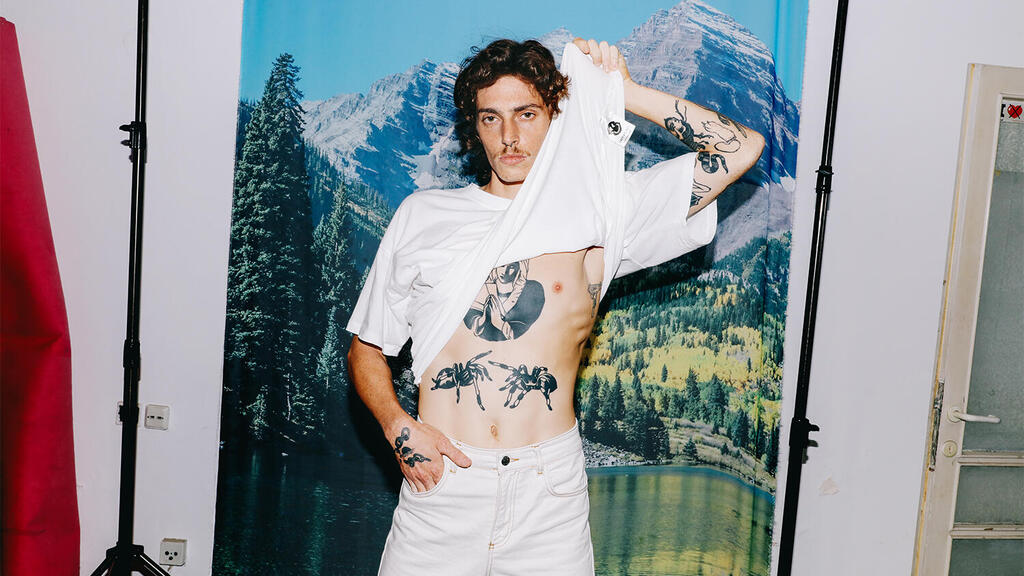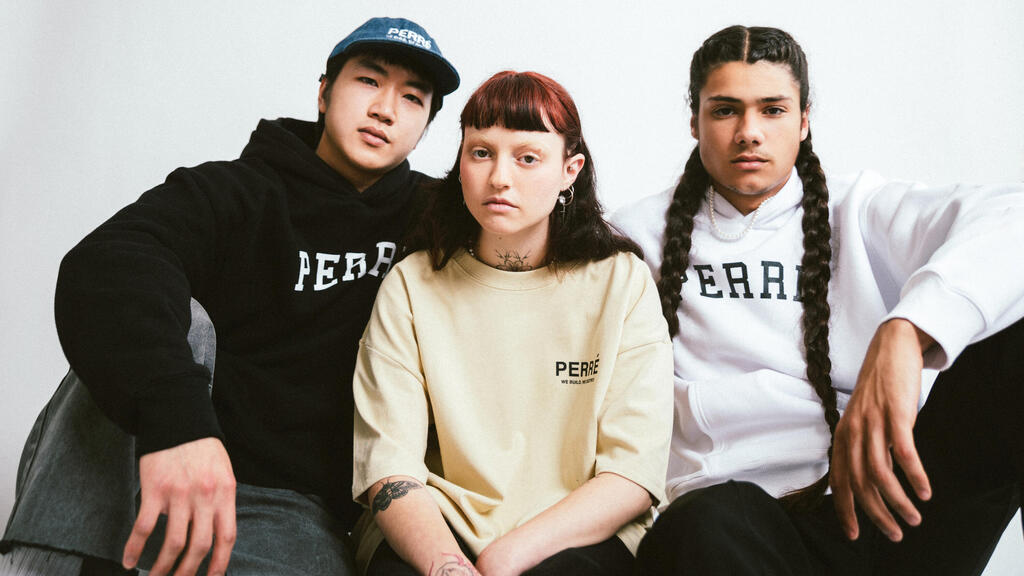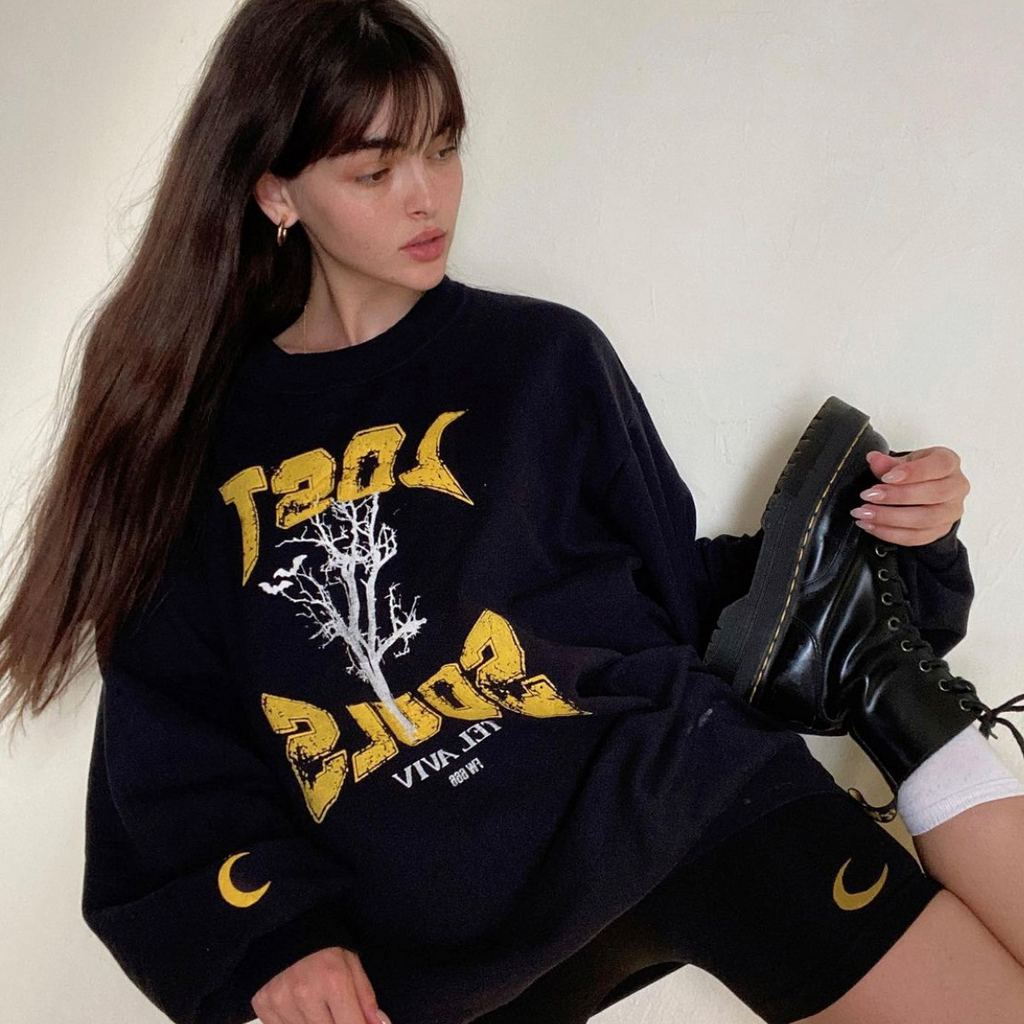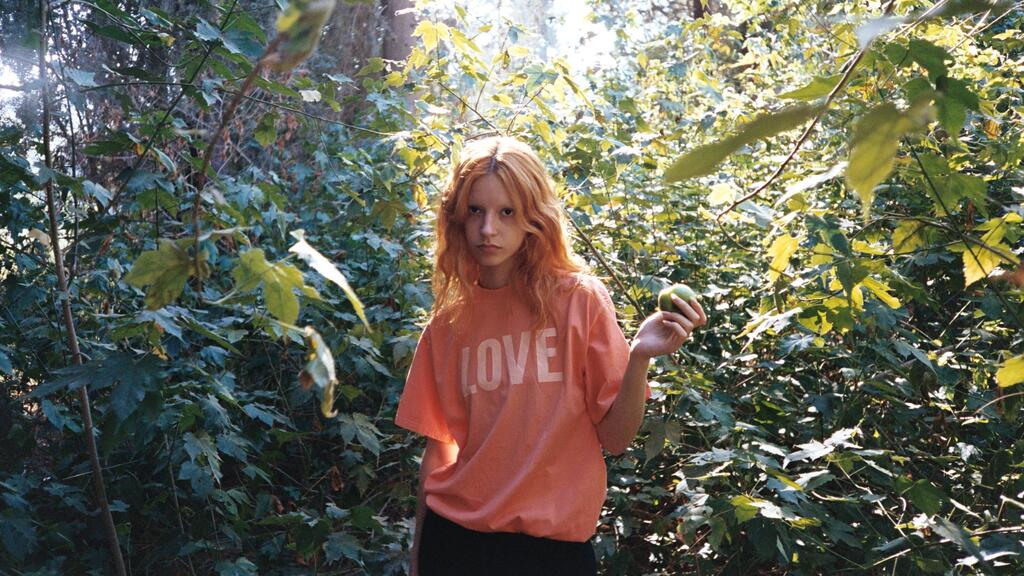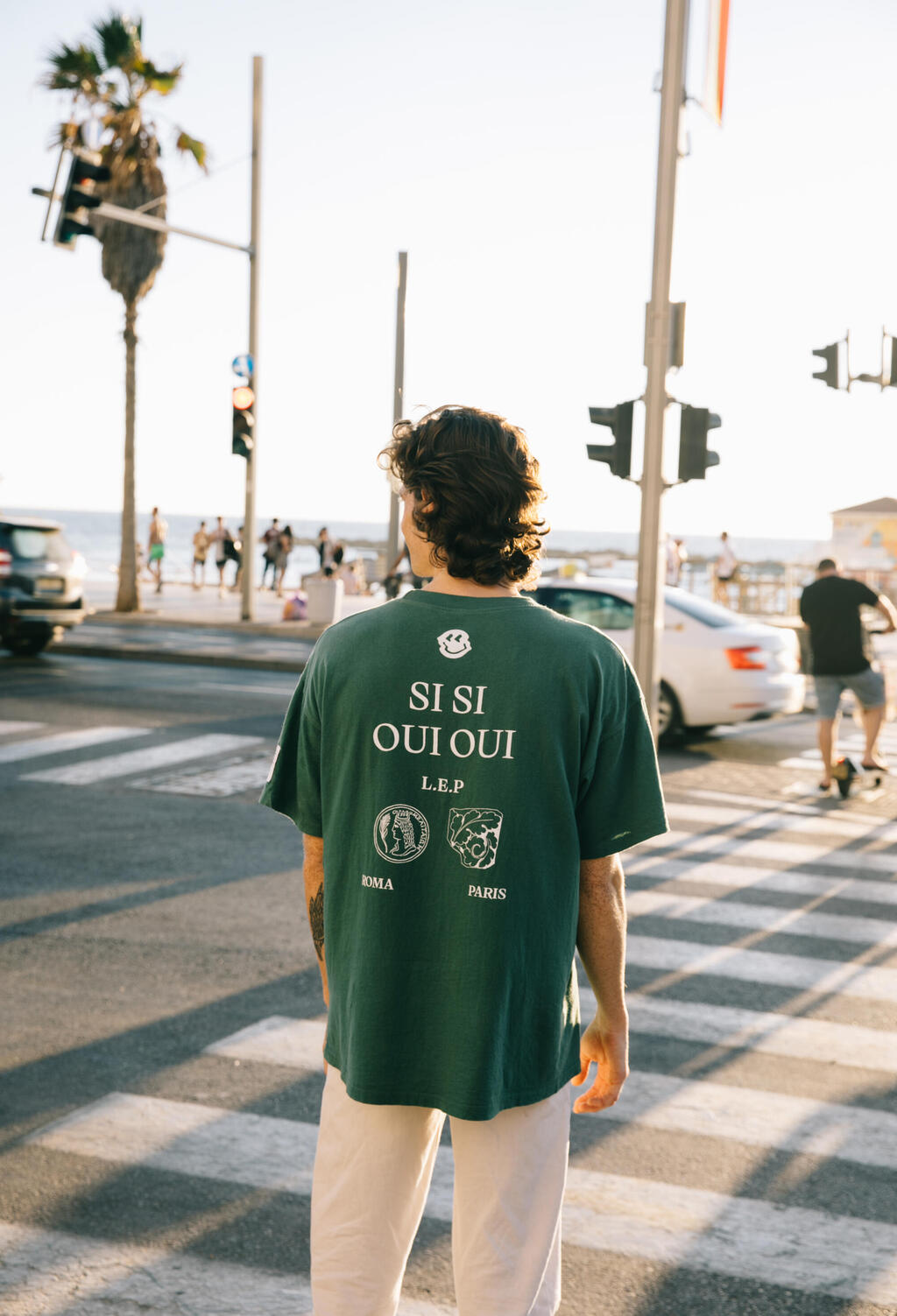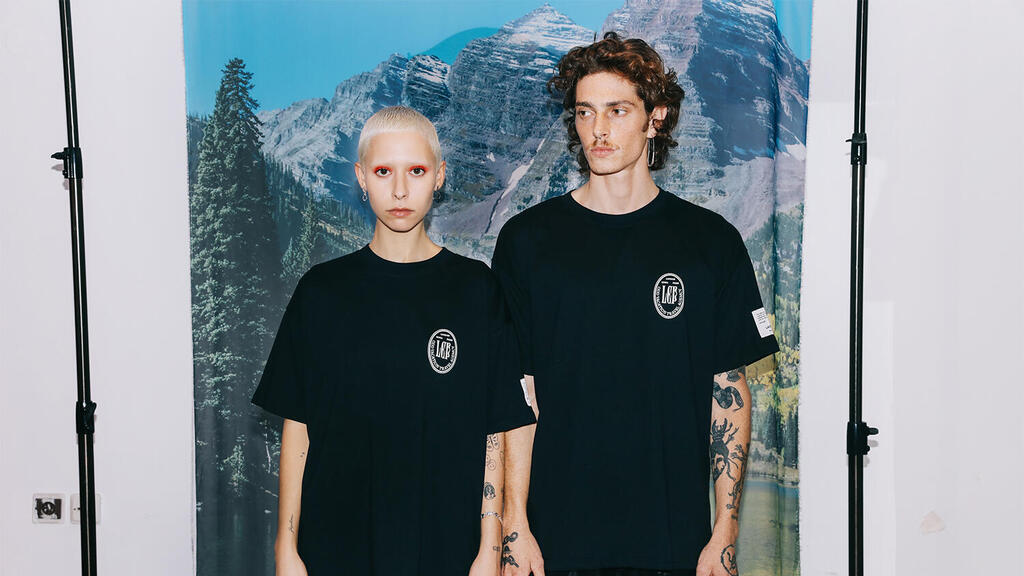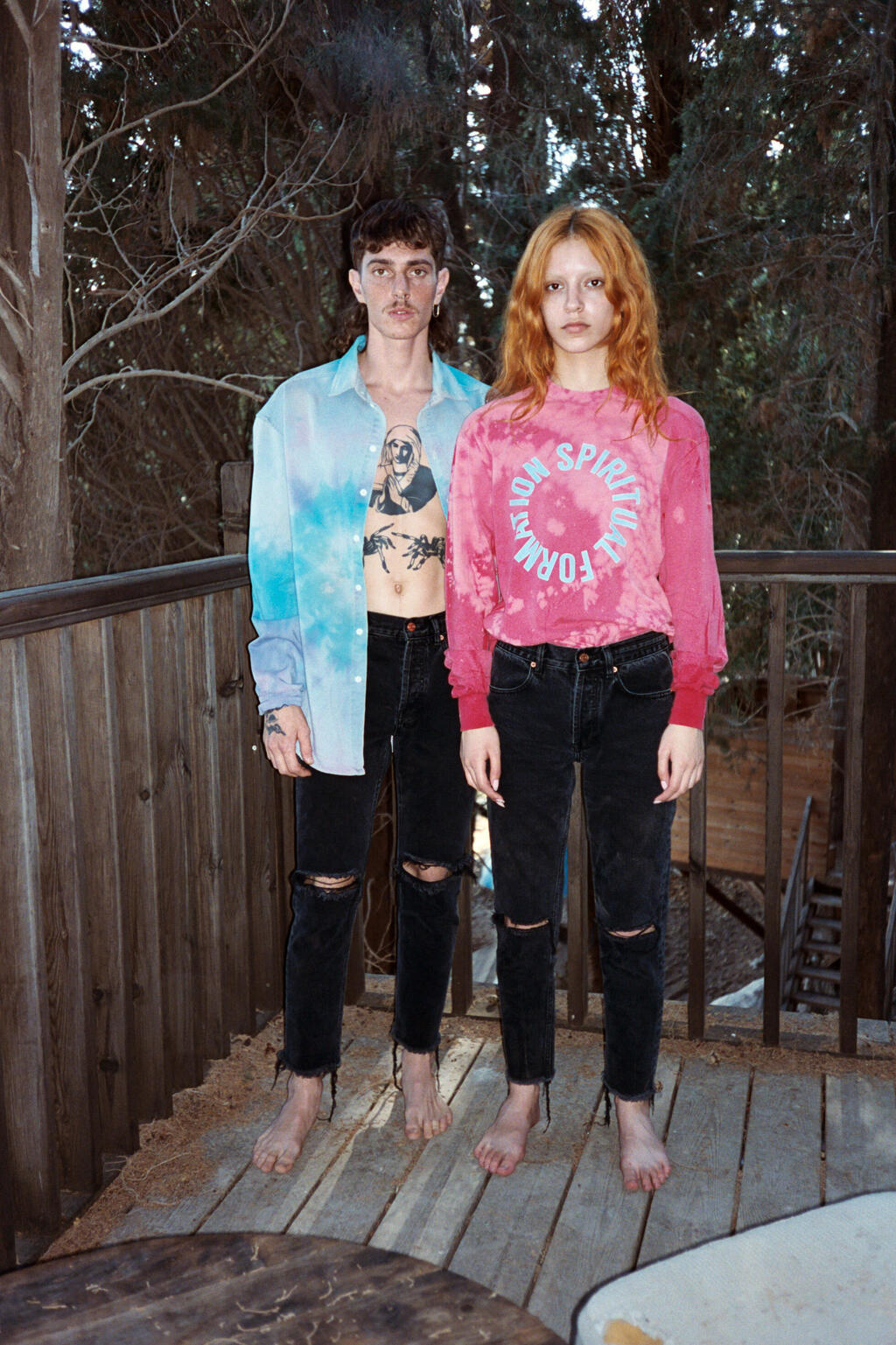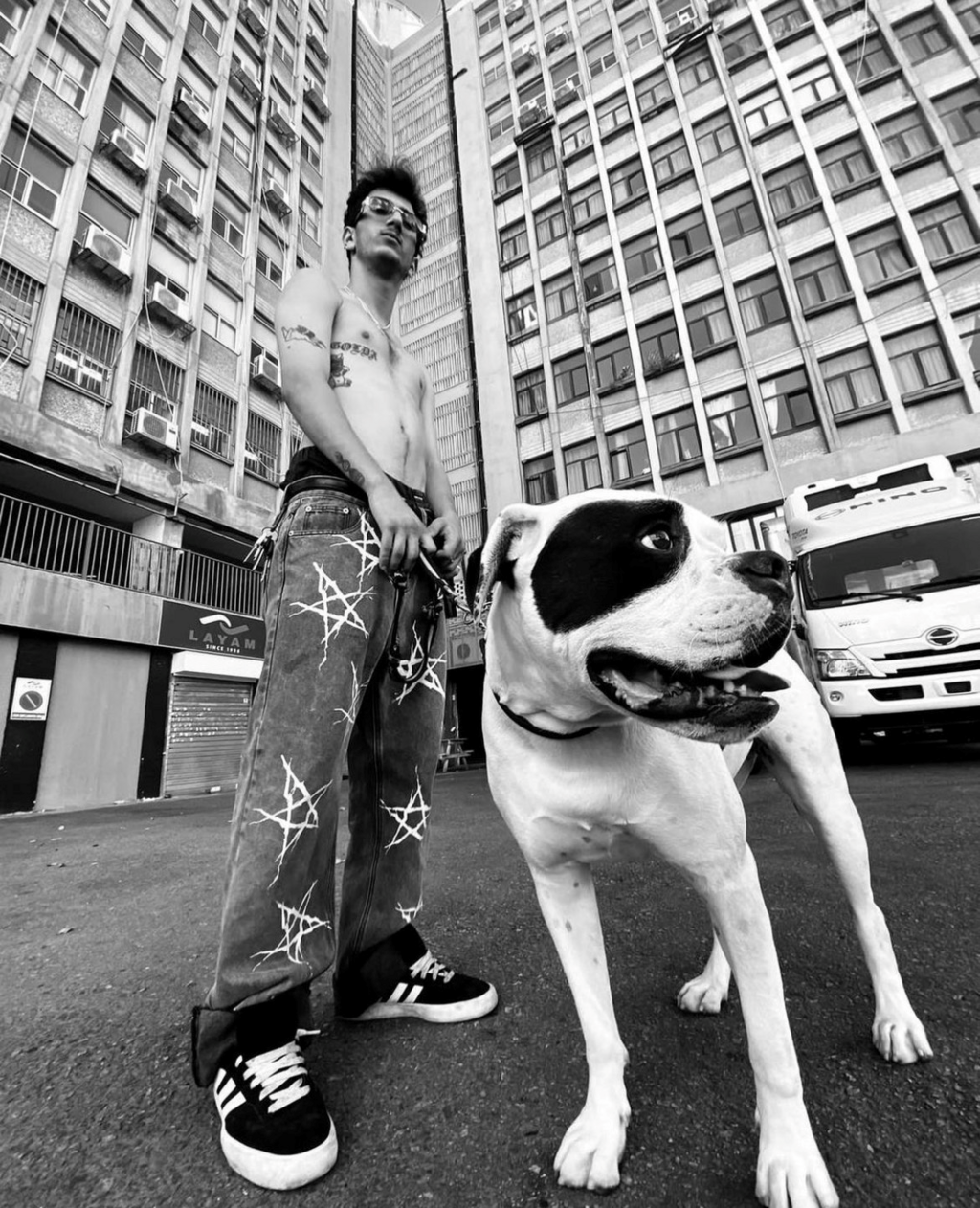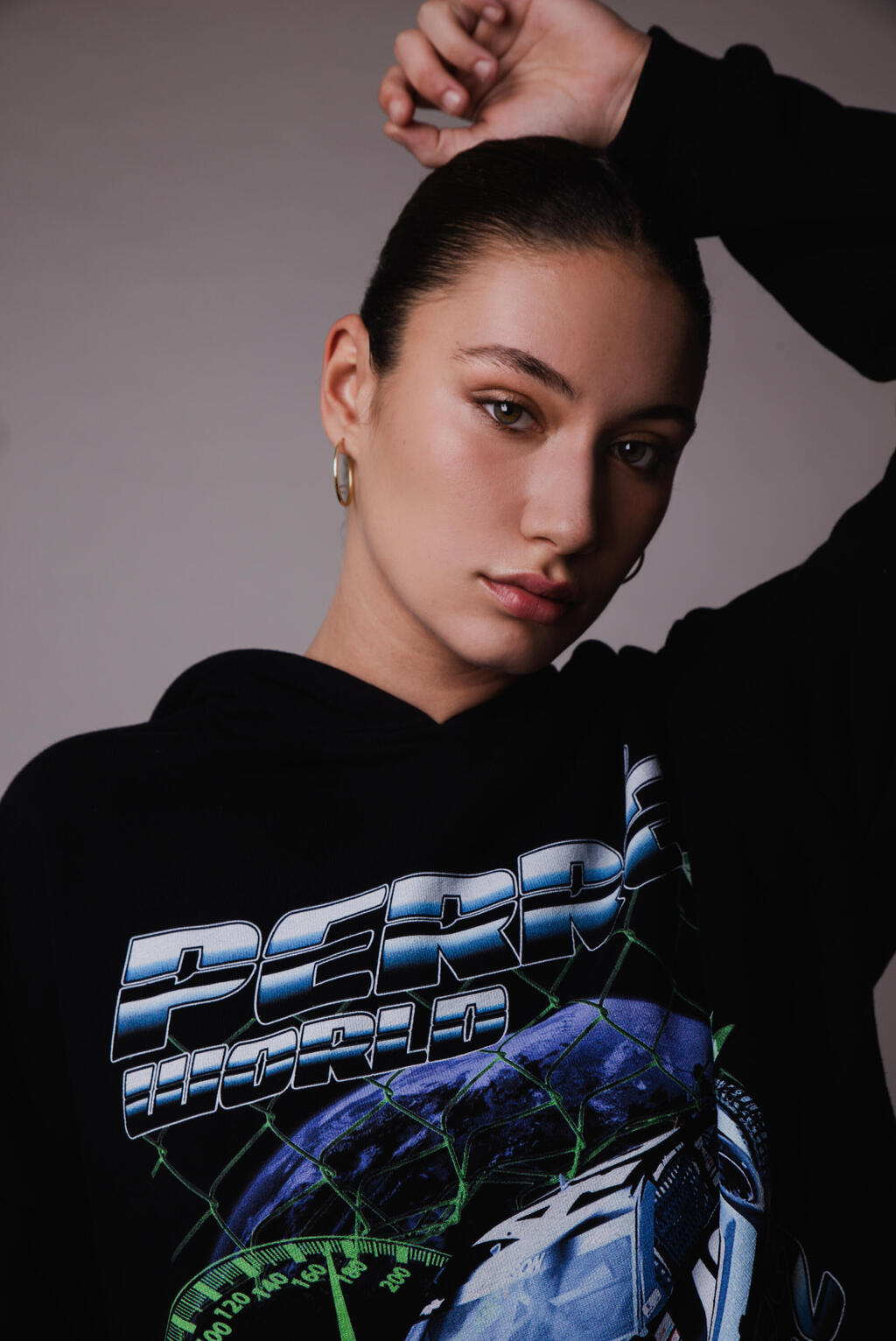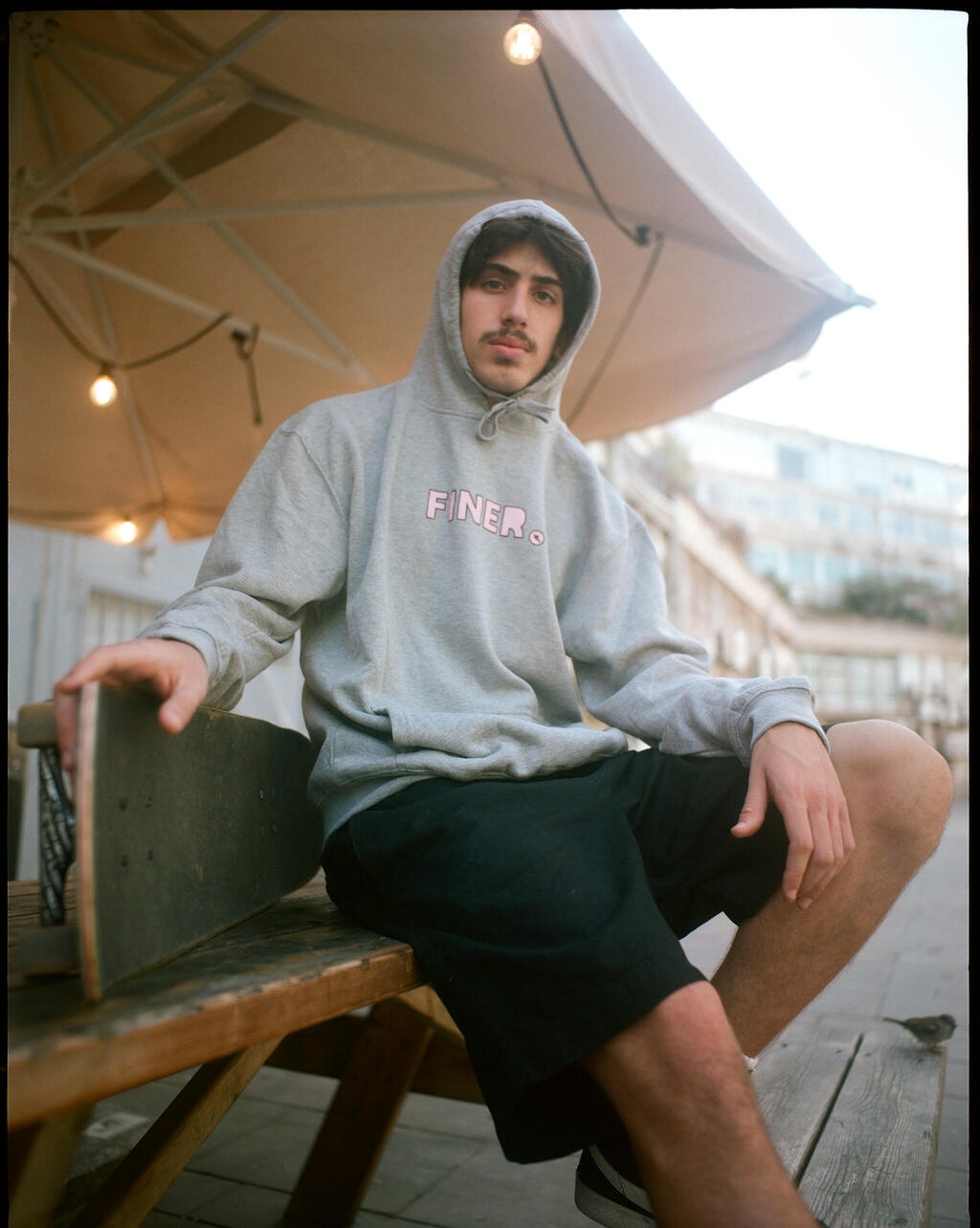Not many would think that one of the industries to flourish during the coronavirus pandemic, would be the fashion sector, especially the Israeli one.
The past few months, however, have shined a spotlight on innovative fashion trends emerging from the Israeli scene that prioritizes comfort and style synonymous with streetwear fashion.
In January, the fashion brand "LAZY EYE ppl" arranged a three-day long sales event in Tel Aviv, which also included a cultural program. The brand was founded by graphic designer Dafna Bloch and fashion designer Mor Haas during yet another coronavirus-induced lockdown in October 2020.
"Just two tired moms with some free time on a park bench," says Bloch while describing how the process of establishing their brand started. She calls their brand a label with independent content and affinity to the worlds of music, theater, and culture.
The pair initially focused on T-shirt design with graphic design logo prints, and today expanded to designing sweatshirts with a uniform cut, which can fit various shapes and sizes of both genders. Their design is consistent - a smooth color in the front, and a graphic print in the back.
LAZY EYE ppl is only one fashion initiative among the growing list of streetwear brands that have emerged in the last two years.
Ironically, the long period of time spent at home due to COVID lockdowns brought along a renaissance of new streetwear brands, such as PULSA DI NURA (Adir Don), PEERE (Mor Anqwe), fINER Studios, SAF, Enterprise, and more.
These new brand join the list of earlier designers of the local fashion scene, including HOLYLAND Civilians, ADISH, and Kesh, which can be credited for laying the foundation of streetwear attire in Israel.
The westernized names the brands choose for their labels are not coincidental; the designers hope to expand beyond Israel's borders and be part of the international fashion scene, especially in style-driven places like Los Angeles and Tokyo.
The recurring motif amongst them continues to be their use of non-Hebrew graphic logos, and the marketing tactics: small launches, limited edition collections, and online or pop-up sales, which bring the product directly from the producer to the consumer.
Bloch, who also works as a graphic designer for other fashion designers, claims that the graphic design-based brands allow a fast transition of ideas to attire.
Even though the products don't undergo a long production process, the prices range from NIS 99.90 for an Enterprise T-shirt to NIS 280 for a LAZY EYED ppl T-shirt, and the average price among the rest of the brands ranges between NIS 150-210.
Sweatshirt prices are a bit higher, ranging from NIS 300-480. The justification for the relatively high prices, at least comparison to the fast-fashion brands, is the local, small-scale production.
"Some NIS 260-280 for a shirt is standard, some would even say cheap," says Bloch, "I know designers that charge NIS 300 per shirt. We receive good feedback from our customers who claim our shirts are worth the price because of their high quality and attention to detail."
The pandemic introduced obstacles for designers and brands which base their business around physical stores, clearing the way for a new generation to step in. The pandemic harmed not only the fashion industry, but also restaurants, night life, and art professions. Many brands said goodbye to their physical stores, and adjusted to the demand for online shopping.
Of the many entrepreneurs that went through this shift are designers of the brand Holyland Civilians - Anat Meshulam and Dor Chen - who share that the nature and speed of collections' release has also changed.
Like Bloch, the designers of Holyland Civilians agree that printing designs on T-shirts helped brands skip the long and complex production processes. However, the couple explains that the COVID waves sparked popularity for streetwear because it increased the consumers' demand for comfortable, spontaneous, and easy clothes. This is not just a product, they claim, it's an idea.
Fashion entrepreneur Adir Don noticed a similar pattern, as he also said goodbye to his boutique after nearly four years.
In 2020, he founded his brand PULSA DI NURA, while maintaining his job as VP in a high-tech company, as devotion to continue his work in the fashion world.
Another brand that founded last April is PERRE by Mor Anqwe. Like Don, Mor comes from the fashion industry with a resume of impressive experience in the field.
Unlike the other companies, however, he doesn't want to produce collections on a small-scale, but with an ambition to become a massive brand. Mor's technique is cooperation with other key figures, such as Israeli rapper Noroz and Shimrit Ben Yaakov's famous brand MISHIMONO.
According to Mor, the last two years offered a breakthrough for streetwear in fashion. The trend is on the rise, and consumers demand for high-quality fashion is on the rise as well.
An older and more familiar brand thriving amid the pandemic is fINER Studioes, founded by 20-year-old Ben Rotshein four years ago, in cooperation with Omer Shafrir, Michael Sabeth, Ben Eshel, and Aviv Goldin. The first shirt they created was a fashion statement dedicated to rapper Tupac Shakur, and their brand continued to grow as streetwear became more and more trendy.
Although it seems as though a community of streetwear fashion designers is coming together, Rotshtein doesn't see it as a trend.
"The Israeli consumers are ready for it without a doubt, they are even thirsty for streetwear that comes from the right places, but now there is about five serious stores in all of Israel, four of them in Tel Aviv, and practically none of them sell local products," he says.
But we do have customers: from kids that heard about us at their skatepark, to an older crowd that ran into our clothes at a pop-up store and liked the style."


